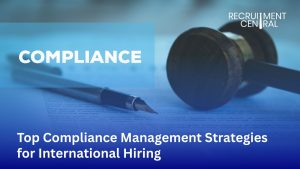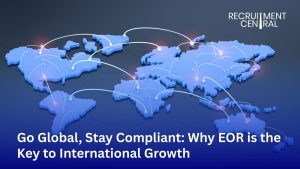In modern-day Singapore, a well-selected talent management system is everything in determining the accomplishments of your organization in terms of human resources operations. The Ministry of Manpower claims that the companies that put a special emphasis on the talent management system experience an increase in retention by 40% and improve productivity by an average of 35%.
Understanding Talent Management Systems
A talent management system constitutes more than just HR software; it represents the very digital backbone of your organization where human capital is nurtured and developed. According to the Singapore Human Resources Institute, 78% of the businesses in Singapore are planning to modernize their Talent Management Systems for 2025.

Key Features that Modern Talent Management Systems Must Have
- Recruitment Management: Hiring Process Streamlined; Candidate Tracking
- Performance Evaluation: Comprehensive Assessment Tools into Performance Feedback System
- Learning & Development: Integrated Training Modules and Skill Tracking (soft and hard Skills)
- Succession Planning: Career Path Plan and Leadership Development
- Compensation Management: Salary Structures and Rewards System
Important Considerations for TMS
When looking for a talent management system for your organization in Singapore, ensure you place the following features at the core of your assessment:
Essential Features:
- Local Compliance: Up-to-date with Singapore labor legislation and CPF requirements
- Multi-language Capability: Interfaces in English, Mandarin, Malay, and Tamil
- Mobile Accessibility: Out-of-office access for busy professionals
- Data Protection: Compliance with PDPA and international standards
Advanced Features:
- Artificial Intelligence-Powered Analytics: Predictive insights for workforce
- Employee Self-Service: A self-service modality for employees to manage their profiles
- Integration: Seamlessly connecting to existing systems
- Customization: Custom workflows properly aligned with your existing processes
Key Implementation Considerations
Successful implementation of TMS requires planning:
Pre-Implementation Activities
- Assessing Needs: Analysis of current HR processes and pain points
- Granting Stakeholder Approval: Assure management and employees
- Data Migration Programming: Strategy for migration of existing records
- Training Arrangements: Establish an orientation and training plan for the users
Cost and Return Analysis
A good understanding of the financial angle is important:
Investment Factors:
- Costs of Licensing: User-based or enterprise basis
- Additional Implementation Charges: Setup and customization costs
- Training costs: Team development and continuous support
- Maintenance Costs: Regular upgrades and technical support
Estimated Returns:
- Time Savings: 45% less time spent on HR administrative tasks
- Cost Efficient: A reduction of about 30% in the recruitment costs
- Lower Error Rate: Opined to have made about 60% less data entry errors
- Expected Production Improvement: Enhancement on HR teams’ productivity by 35%
Local Market Considerations
Unique business environment of Singapore has to be given special consideration to when addressing:
Cultural Issue:
- Asian Work Culture: An understanding of local management style
- Communication Modes: Both formal and informal channels should be adopted
- Group Dynamics: Support the environment of teamwork
- Career Development: Make it Asian centered
Integration and Scalability
The perfect TMS investment of tomorrow would inform you;
Growth Drivers:
- Regional Expansion: Accessibility across varied countries
- Growth of the Workforce: Take care of changing work models
- Technology Upgrades: Regular feature enhancement would do.
- Introduction to Data Analytics: Good reporting abilities
Also Read: Recruitment Central’s Remarkable Comeback: Turning Setbacks into Award-Winning Success
Making The Final Choice
Look into the most critical decisions before making the selection:
Decision Grid:
- Vendors: Based on their dealings within Singapore market
- Trial Run: Test with your people
- Post Comparison: Taking recommendations at par to other organizations
- Support Structure: Availability of local technical help.
Conclusion
Selecting the right talent management system for your Singapore organization is a strategic decision that requires careful consideration of multiple factors. From compliance requirements to cultural nuances, each aspect plays a crucial role in determining the success of your implementation.
Remember that the best system is one that not only meets your current needs but can also grow with your organization. Take time to evaluate options thoroughly, involve key stakeholders in the decision-making process, and focus on long-term value rather than just immediate costs.
By following this comprehensive guide and considering your organization’s unique needs, you’ll be well-equipped to choose a talent management system that drives your HR initiatives forward and contributes to your company’s success in Singapore’s competitive business landscape.







